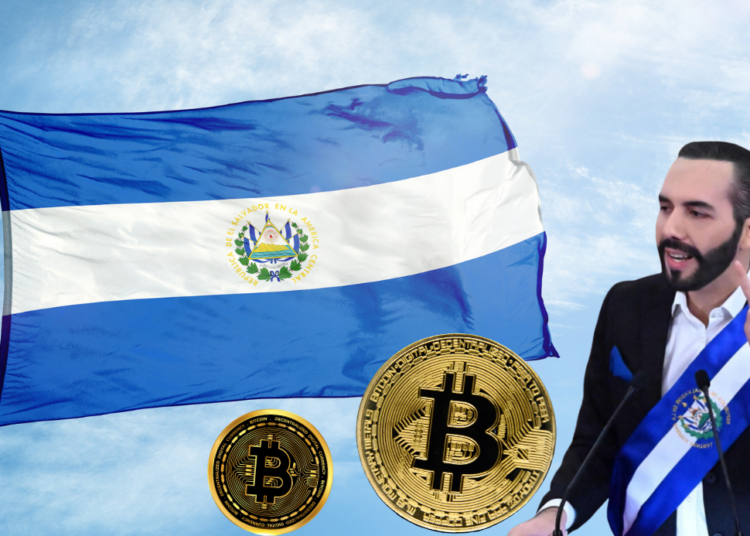El Salvador’s Bitcoin Trailblazing Journey: Embracing Bitcoin as Legal Tender.
In an unprecedented move that has sent ripples across the global economic landscape, El Salvador has become the first country to adopt a cryptocurrency, specifically Bitcoin, as legal tender, alongside the United States dollar. This monumental decision marks a pivotal moment in the narrative of cryptocurrencies and potentially sets the stage for further discussions regarding the role of digital currencies in the global economy.
The Dawn of a New Currency Era: El Salvador Bitcoin Adaptation
The journey of El Salvador Bitcoin adaptation started with President Nayib Bukele’s bold announcement, highlighting the nation’s strategic pivot towards cryptocurrency. The young president, known for his progressive policies and forward-thinking economic strategies, has positioned this move as a way to democratise financial services in a country where a significant portion of the population is unbanked.
Since the law recognizing Bitcoin as legal tender passed, there has been a flurry of El Salvador Bitcoin news, with various sectors worldwide responding with a mix of optimism, scepticism, and everything in between. The country has initiated its venture into this new economic paradigm by rolling out infrastructure that supports Bitcoin transactions, such as Bitcoin ATMs and training programs for vendors.
Legal, Economic, and Social Implications
Understanding the gravity of El Salvador’s decision requires an examination of the legal and economic layers involved. The El Salvador Bitcoin legal tender law means that all businesses must accept Bitcoin as a form of payment unless they lack the technology to do so. The law also signifies that tax contributions can be paid in Bitcoin and exchanges in the cryptocurrency will not be subject to capital gains tax.
In terms of the social aspect, the El Salvador Bitcoin president, Nayib Bukele, has emphasised that this policy is a social justice quest. By leveraging Bitcoin’s decentralised and borderless nature, the president believes that Salvadorans living abroad can send remittances back home with fewer fees incurred, potentially resulting in a more direct form of economic upliftment.
However, the policy has not come without its challenges. Public scepticism and protests have underscored a critical disconnect between the government’s ambitions and the population’s readiness for such a drastic economic shift. Many citizens have expressed concerns about Bitcoin’s volatility and the rapid pace at which these changes have been implemented.
Bitcoin Mining: An Environmental and Economic Challenge
One cannot delve into the discussion of El Salvador Bitcoin currency adaptation without touching upon Bitcoin mining. Mining, which involves using computer hardware to solve complex mathematical problems to validate transactions on the cryptocurrency network, is notorious for its substantial energy consumption. Aware of this criticism, President Bukele has proposed harnessing the country’s geothermal energy from volcanoes for this purpose, a solution that promises environmental sustainability and positions El Salvador Bitcoin as a potential hub for eco-conscious Bitcoin mining.
Fiscal Policies and International Perspectives
The El Salvador Bitcoin amount in circulation within the country’s economy is poised to grow, with the government’s proactive approach in distributing the cryptocurrency. In an effort to encourage the public to engage with the newly implemented system, the government introduced the state-backed “Chivo” wallet, offering El Salvadorans $30 in free Bitcoin for signing up. This move was designed to kickstart the use of Bitcoin for everyday transactions, from purchasing goods and services to paying bills and taxes.
This rollout, however, was met with technical issues and widespread apprehension, as reflected in surveys indicating that a majority of Salvadorans were wary of the new cryptocurrency strategy. Despite this, the government remains steadfast in its commitment to establishing a robust framework for digital currency operations.
Navigating Through Uncertainty
The road to widespread El Salvador Bitcoin wallet adoption and consistent use is fraught with uncertainty. The nation finds itself navigating a complex maze of economic recalibration, technological education, and infrastructure development. The government faces the arduous task of assuaging the populace’s concerns, many of whom are grappling with the volatility and intangibility of cryptocurrency.
Furthermore, global entities like the International Monetary Fund (IMF) and the World Bank have expressed reservations about the move, highlighting issues such as financial stability, consumer protection, and the potential facilitation of illicit financial activities.
A Revolutionary Blueprint or a Cautionary Tale?
As El Salvador Bitcoin embarks on this uncharted journey, the world watches with bated breath, understanding that the outcome of this experiment has far-reaching implications for the global financial ecosystem. The country could either emerge as a revolutionary blueprint for other nations to follow or stand as a cautionary tale that underscores the complexities of integrating cryptocurrencies into a national economy.
What is undeniable, amid the controversies and uncertainties, is that this bold move has etched El Salvador’s Bitcoin name in the annals of economic history. The nation stands as the first to intertwine its financial system’s fate with that of a cryptocurrency, charting a course that several others, for better or worse, may someday follow.
As this narrative continues to unfold, stakeholders around the globe will remain glued to the stream of El Salvador Bitcoin news, keenly analyzing each development as the small Central American country takes on the colossal task of tethering a national economy to the world of digital currency. Whether this ambitious venture will be a stroke of genius or a precarious gamble, only time will tell.














